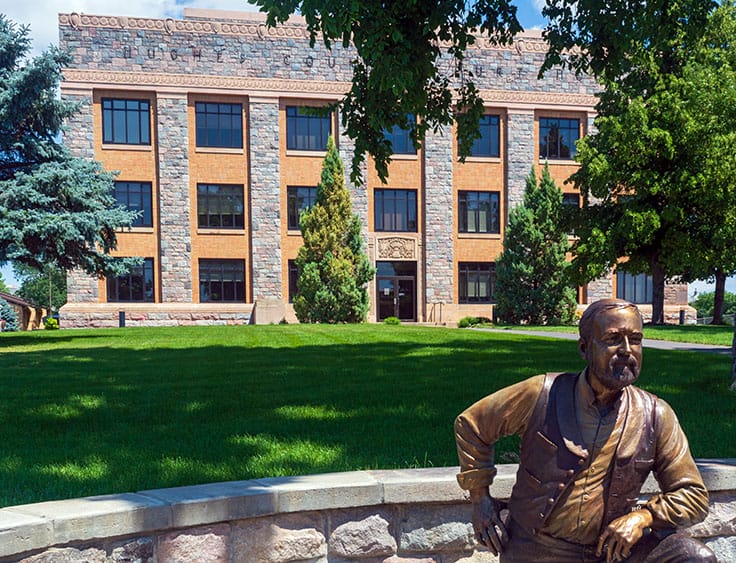
David Reinhold | Adobe Stock
The voters of South Dakota spoke in favor of adult-use cannabis legalization by way of passing Amendment A in the November election, but the state’s governor and a circuit judge aren’t listening.
In allowing a lawsuit challenging the constitutionality of the state-passed ballot measure to proceed through an executive order, Gov. Kristi Noem opened the door for Circuit Judge Christina Klinger to reject the voters’ will by striking down the approved adult-use amendment in a ruling she issued Feb. 8. Klinger said Amendment A violated South Dakota’s requirement that constitutional amendments be limited to just one subject.
Article XXIII of the South Dakota Constitution states: “No proposed amendment may embrace more than one subject. If more than one amendment is submitted at the same election, each amendment shall be so prepared and distinguished that it can be voted upon separately.”
In the conclusion of her ruling, Klinger said, “Amendment A is unconstitutional as it includes multiple subjects in violation of Article XXIII, and it is therefore void and has no effect. Furthermore, Amendment A is a revision as it has far-reaching effects on the basic nature of South Dakota’s governmental system. As a result, Amendment A was required to be submitted to the voters through the constitutional convention process set forth in Article XXIII.”
The measure in question, Amendment A, read on the state ballot: “An Amendment to the South Dakota Constitution to legalize, regulate and tax marijuana; and to require the legislature to pass laws regarding hemp as well as laws ensuing access to marijuana for medical use.”
Voters approved Amendment A with 54.2% showing their support. Measure 26, the medical cannabis program ballot measure, also passed with 69.9% in favor.
With those results, South Dakota made history by passing both medical and adult-use cannabis on the same ballot, becoming the first state in the union to do so. But less than a month later, on Nov. 24, Pennington County Sheriff Kevin Thom and South Dakota Highway Patrol Col. Rick Miller filed a lawsuit challenging Amendment A, arguing it violates the state’s one-subject rule, and the amendments and revisions article of the South Dakota Constitution.
The plaintiffs argued that Amendment A has five subjects: legalizing cannabis, regulating cannabis, taxing cannabis, requiring the South Dakota Legislature to pass laws regarding hemp and ensuring access to medical cannabis.
South Dakotans for Better Marijuana Laws, the group behind Amendment A, filed a response in court on Dec. 7, arguing that the case should be dismissed because voiding Amendment A would overturn the will of the people. Citizens from that group also argued that Amendment A had one subject: cannabis.
On Jan. 8, Gov. Kristi Noem issued an executive order that allowed the legal challenge of Amendment A to proceed. In that order, Noem said, “The initiative process used to place Constitutional Amendment A on the ballot was not proper and violated the procedures set forth in the South Dakota Constitution.”
Also in that order, Noem said she instructed Miller to file the litigation against Amendment A.
Nonetheless, South Dakota Rep. Mike Derby and Sen. Brock Greenfield, both Republicans, went ahead to file legislation Feb. 3 that would implement the state’s adult-use cannabis program that voters approved in Amendment A.
While H.B. 1225 said the legislature does not endorse the decision of the voters, it also said, “In recognition of the voters’ recent decision on Amendment A, the legislature believes it is necessary to enact this legislation to properly ensure the regulated and enforceable administration of laws concerning the sale, possession and consumption of adult-use retail marijuana.”
But the 22-page bill included a provision that would void the proposed law if Amendment A were declared invalid by the South Dakota Supreme Court. The pending lawsuit filed by law enforcement personnel—as instructed by Noem—could be heading in that direction after Klinger’s ruling on Feb. 8.
In the conclusion of her ruling, Klinger also said, “The failure to submit Amendment A through the proper constitutional process, voids the amendment and it has no effect. Accordingly, Plaintiffs’ Motion for Summary Judgment in this matter is granted.”
